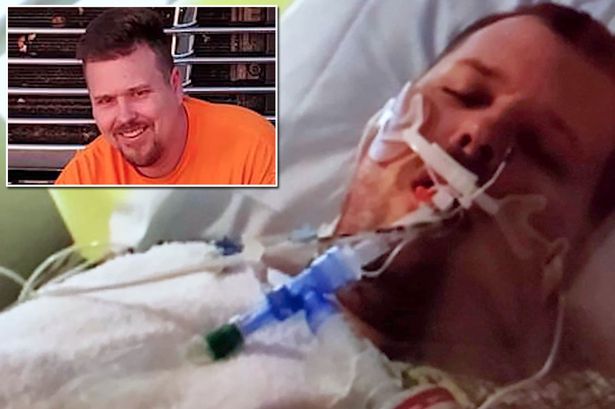41-year-old truck driver Anil Gharmalkar thought that he was too healthy to catch Covid-19.
“I had a friend who was a critical care nurse in New York City,” he says, “and I heard what was going on there.
“I firmly believed that as healthy as I was, I wouldn’t get it, it wouldn’t affect me.”
He says he thought the pandemic was only a problem for older people, or people in big cities, and it wouldn’t be a problem for him, in rural Parsons, Kansas.
He admits that his attitude back then was “ridiculous and inexcusable.”
Because now, seven months after he was first diagnosed with coronavirus, Anil is still weak and tired, and short of breath. He’s dealing with the after effects of a tracheotomy, and of the trauma of coming so close to death.
“I didn’t think it would be in our region,” he said in a video briefing from the University of Kansas Health System,” it was a big-city problem. It was a problem for people seriously ill or elderly.
“Even when my mom dropped me off at the ER — as a nurse she didn’t use PPE to drop me off for the 20-minute drive and because of that day on that drive, my last thought before the ventilator was, ‘Oh my God, I’ve killed my family.’”
Because now, seven months after he was first diagnosed with coronavirus, Anil is still weak and tired, and short of breath. He’s dealing with the after effects of a tracheotomy, and of the trauma of coming so close to death.
“I didn’t think it would be in our region,” he said in a video briefing from the University of Kansas Health System,” it was a big-city problem. It was a problem for people seriously ill or elderly.
“Even when my mom dropped me off at the ER — as a nurse she didn’t use PPE to drop me off for the 20-minute drive and because of that day on that drive, my last thought before the ventilator was, ‘Oh my God, I’ve killed my family.’
Anil says that the virus “didn’t care” what he believed, and that the doctors “fought like hell” and “took an inordinate amount of labor and man hours” to keep him alive, even if he isn’t 100% yet.
“It scares me if enough people show up that need as much care as I needed to stay alive (if) there will be enough services to keep them there or for people to recover.”
Anil is now taking a lot more care with his health: “Anyone that comes into contact with us, everyone is masked up,” he said.
“There’s a lot of concern since my recovery started over with our last visit to the ICU, I may not be able to withstand even a flu virus or something that might be (comparatively harmless) at this time.”



